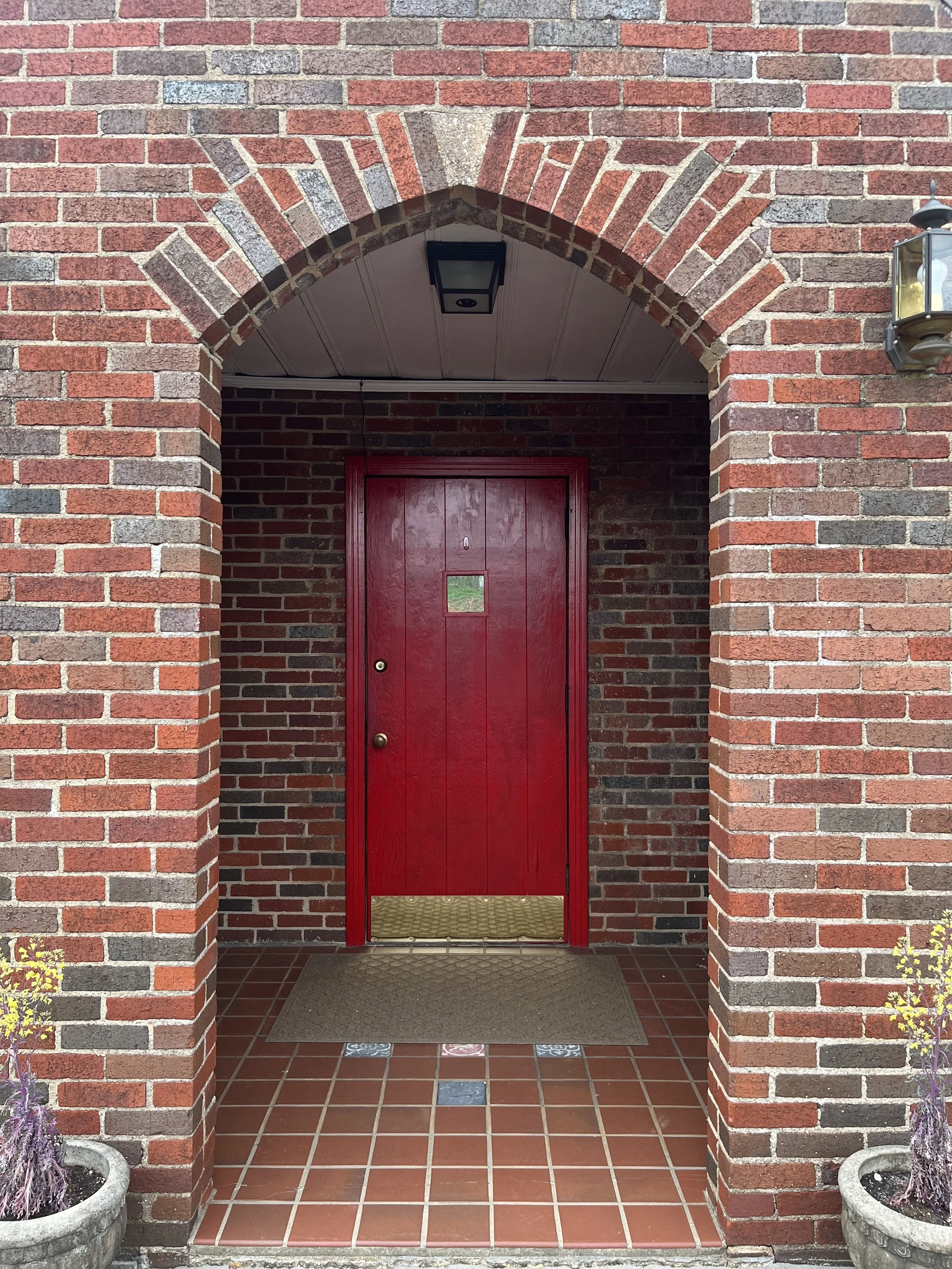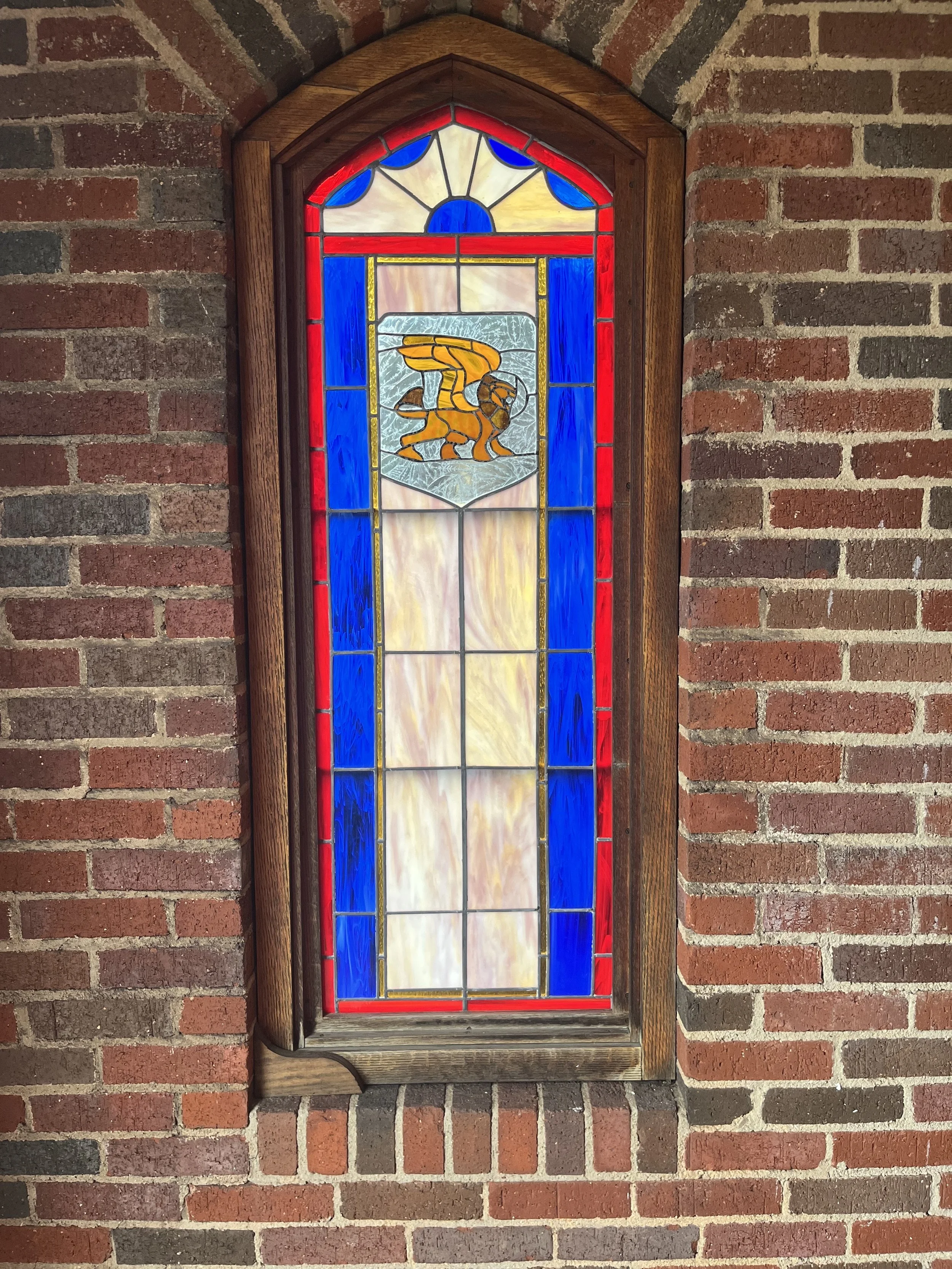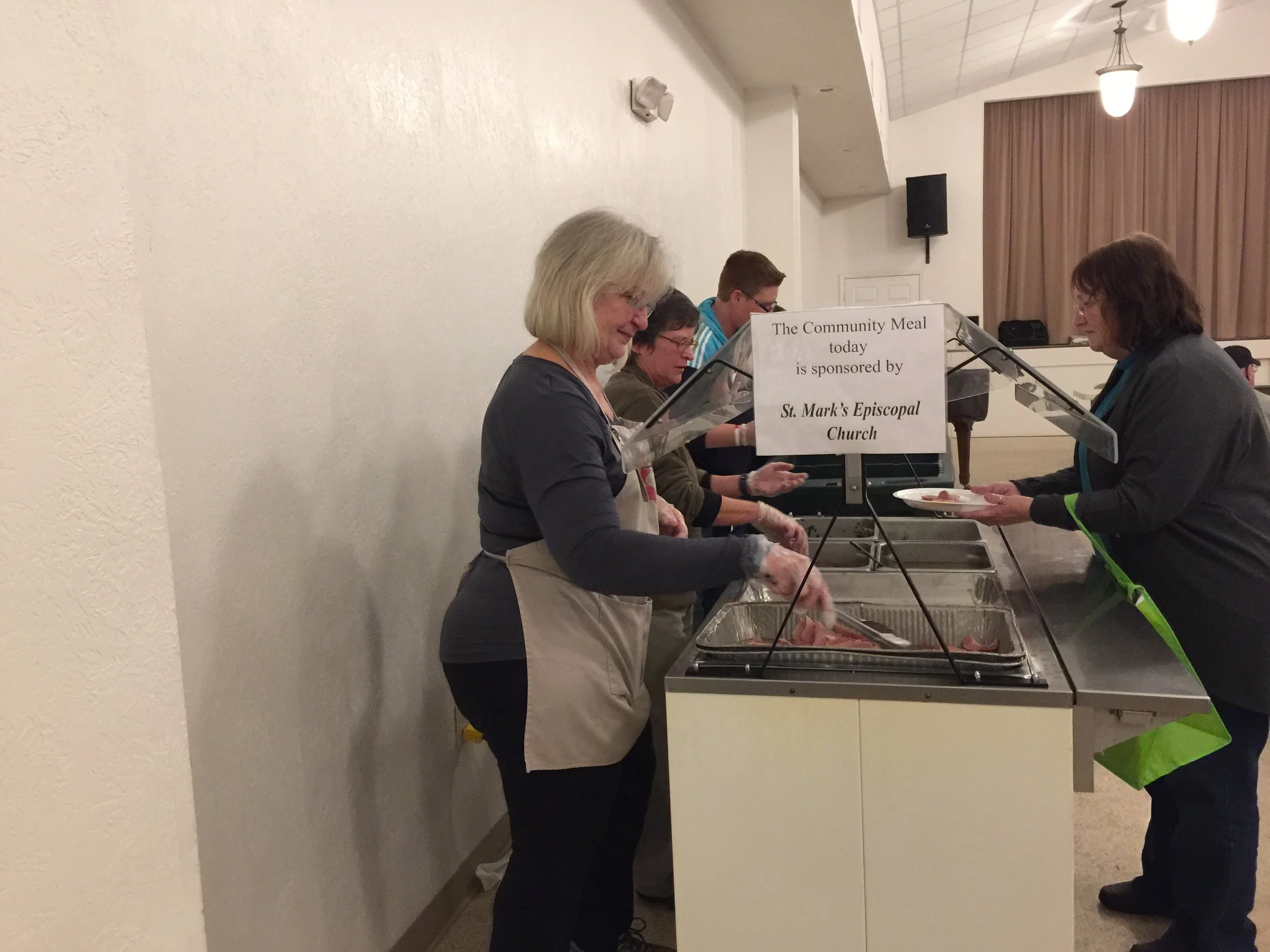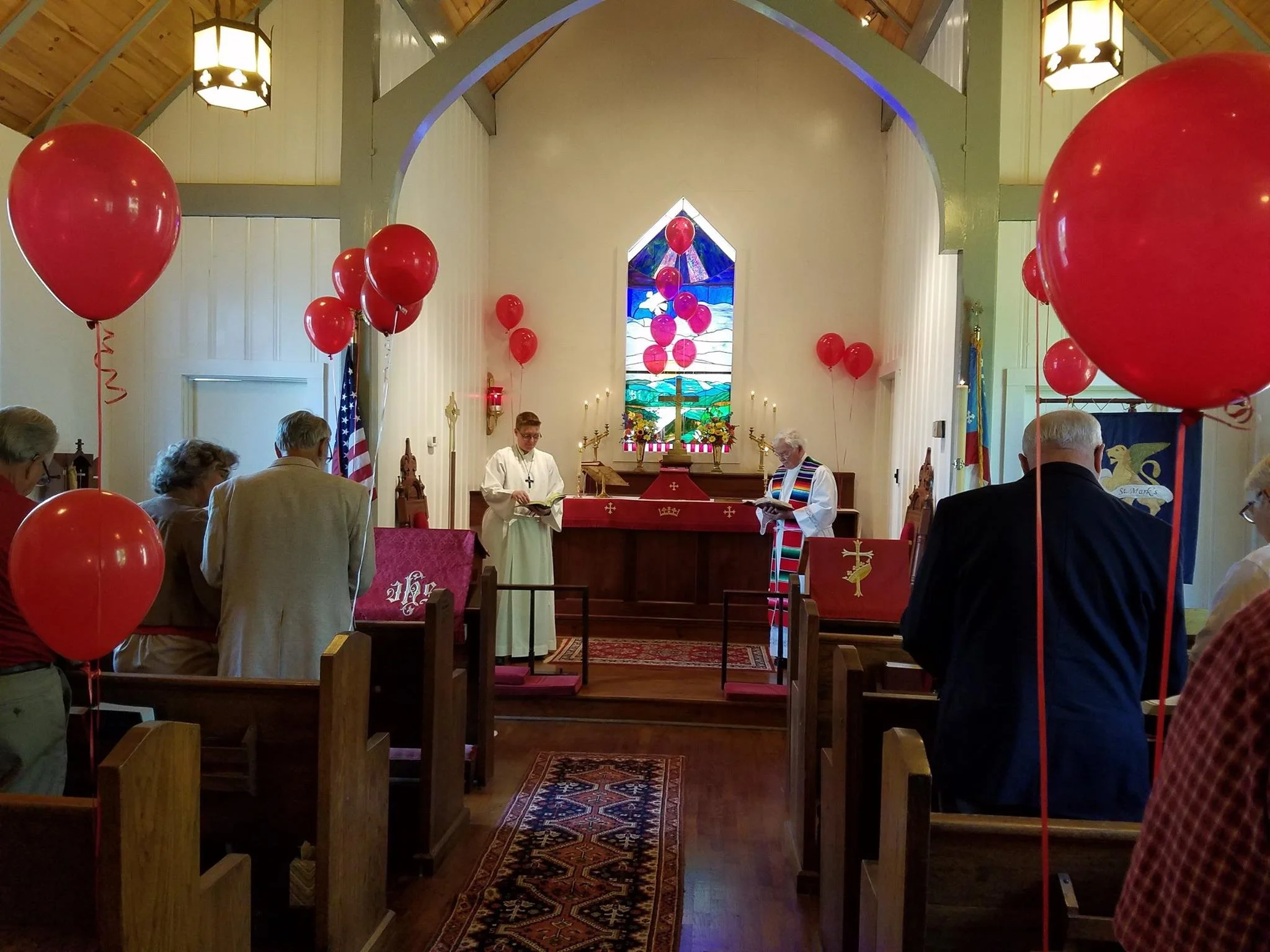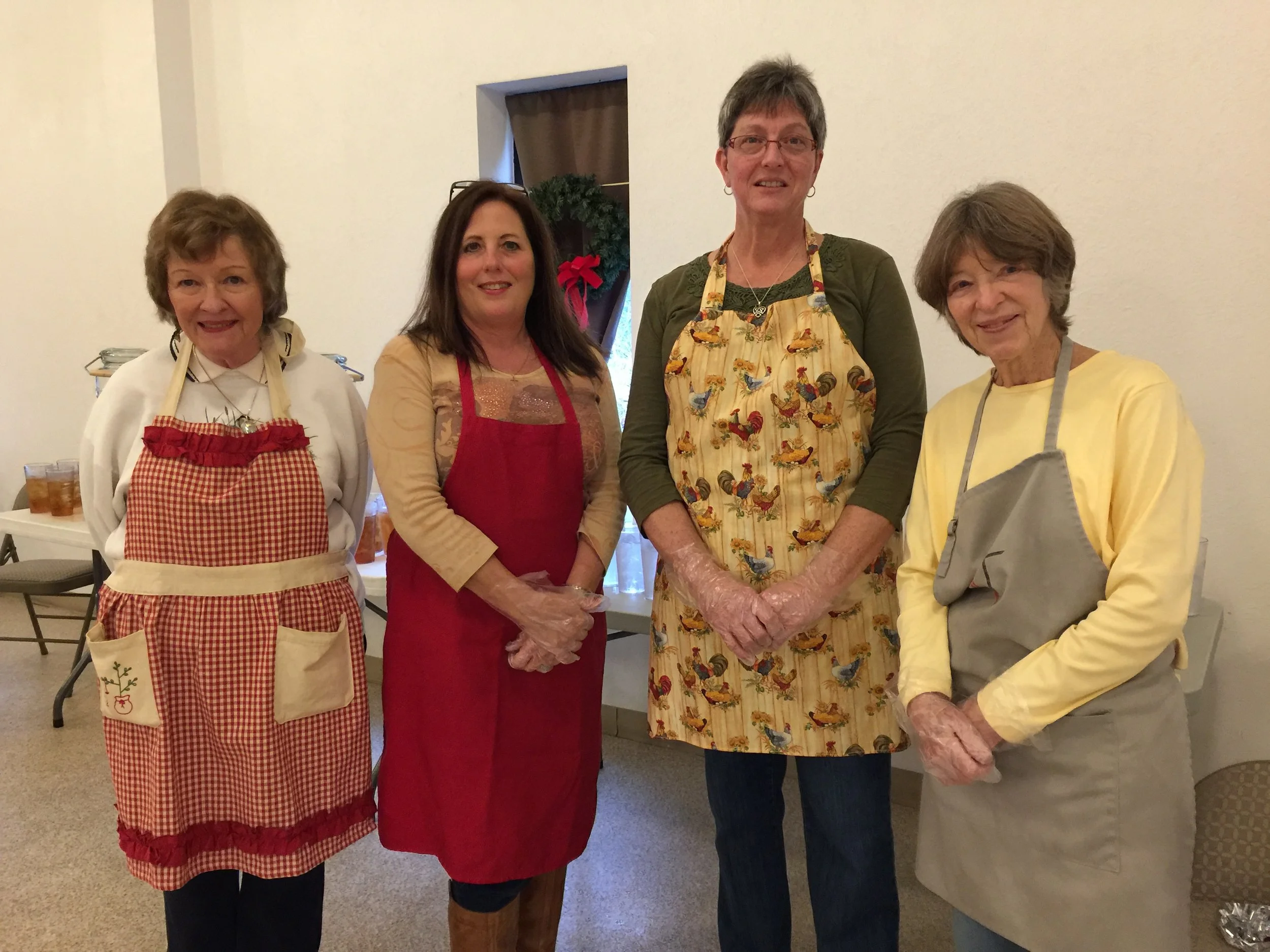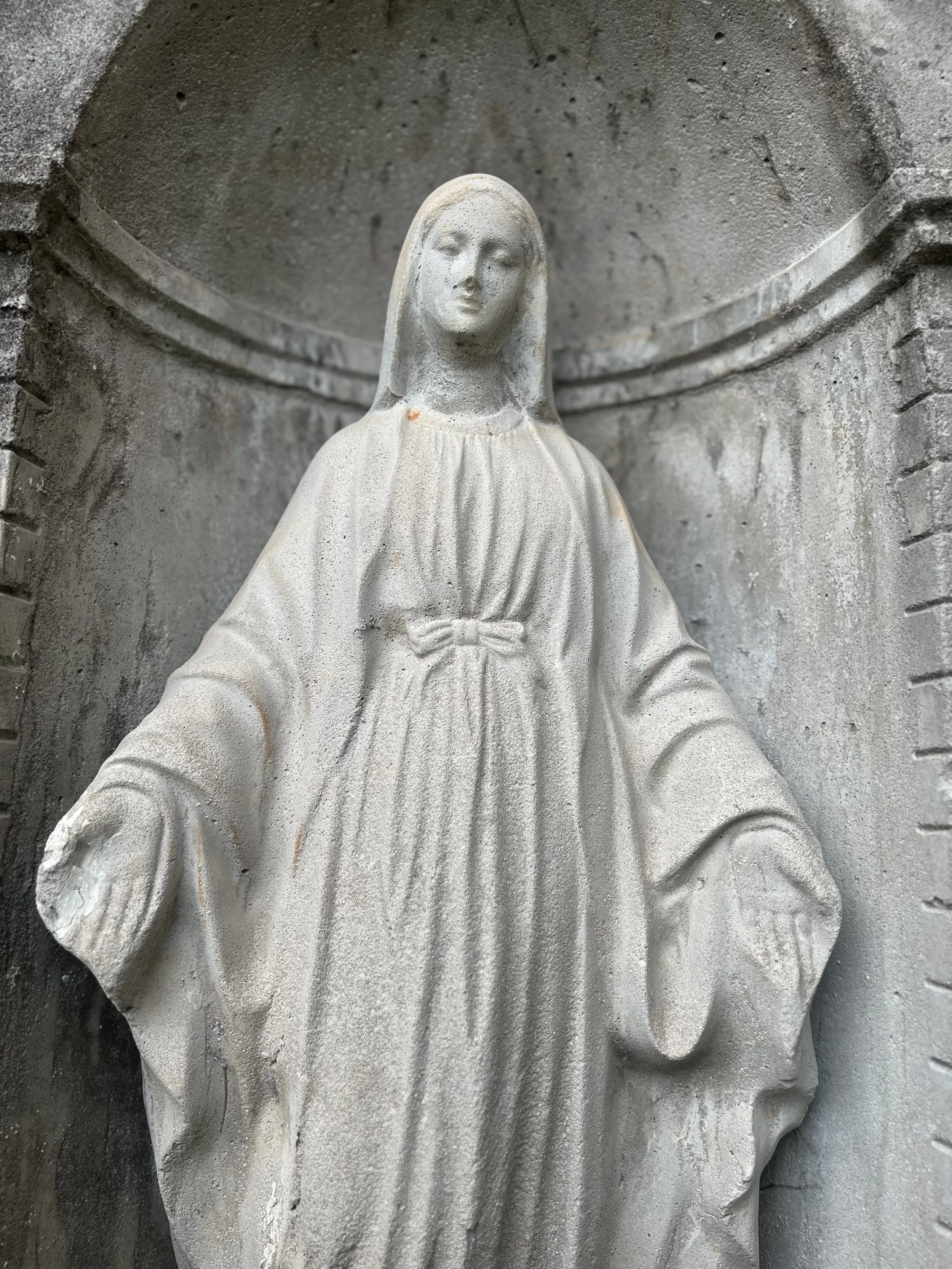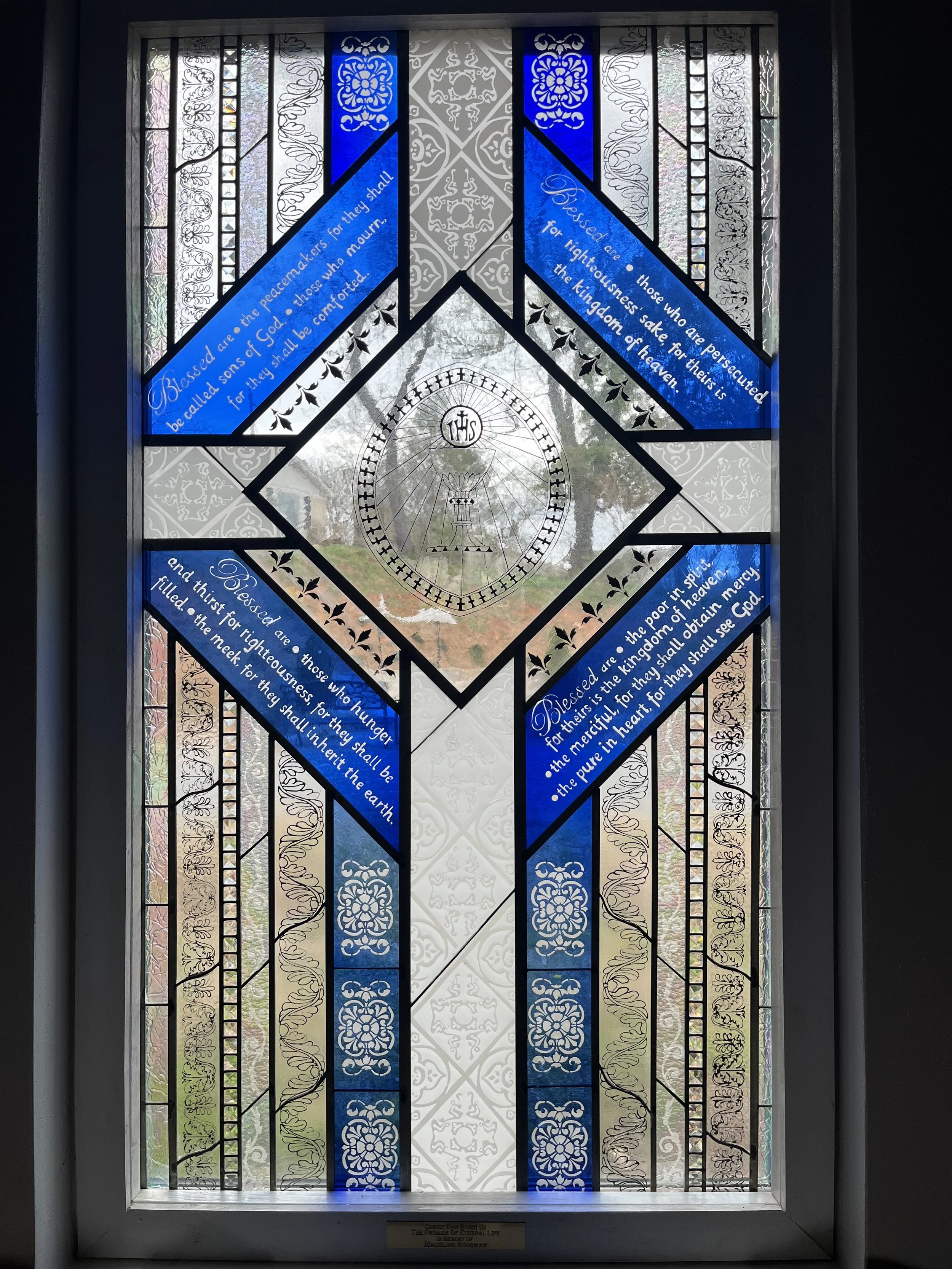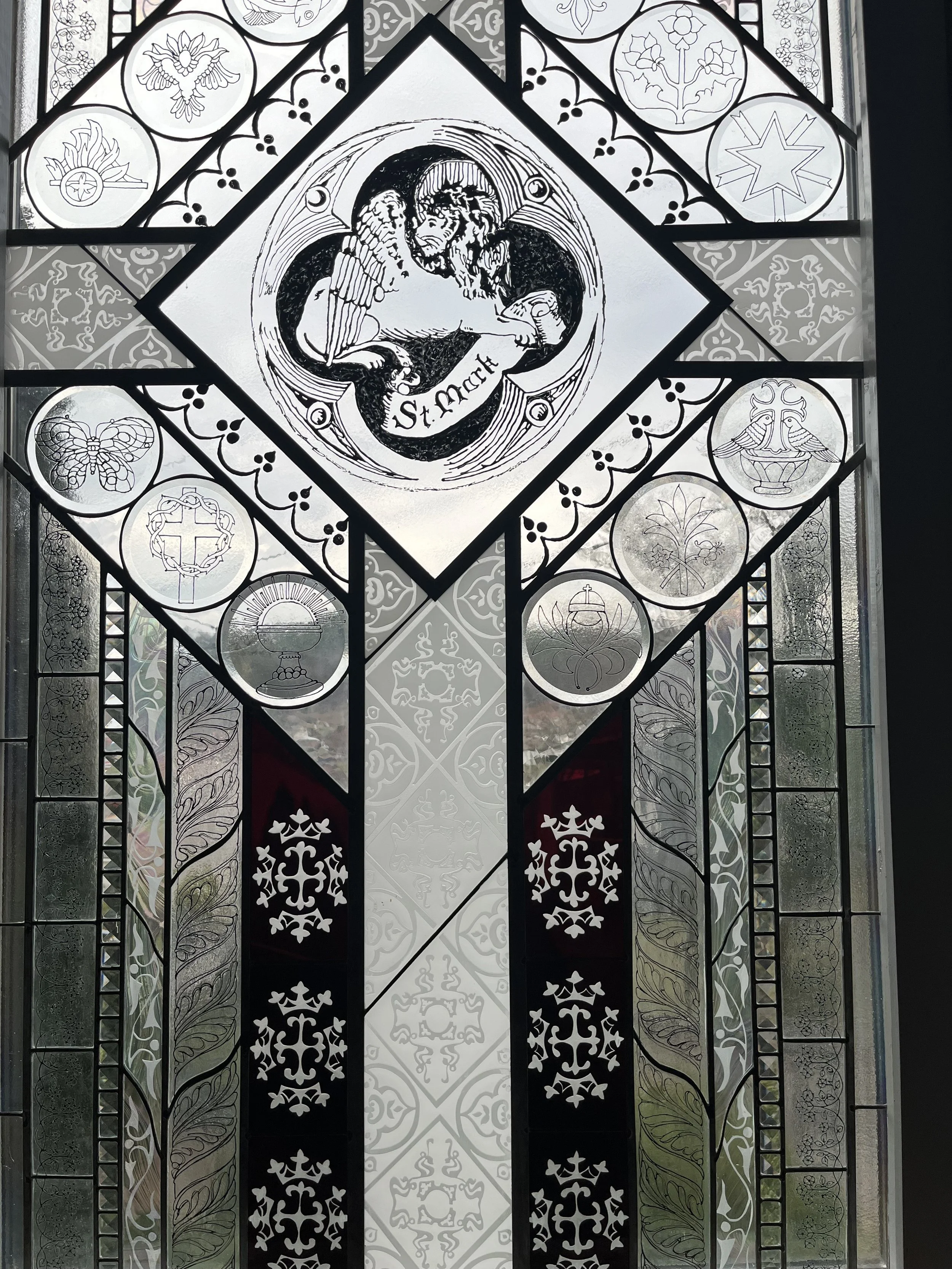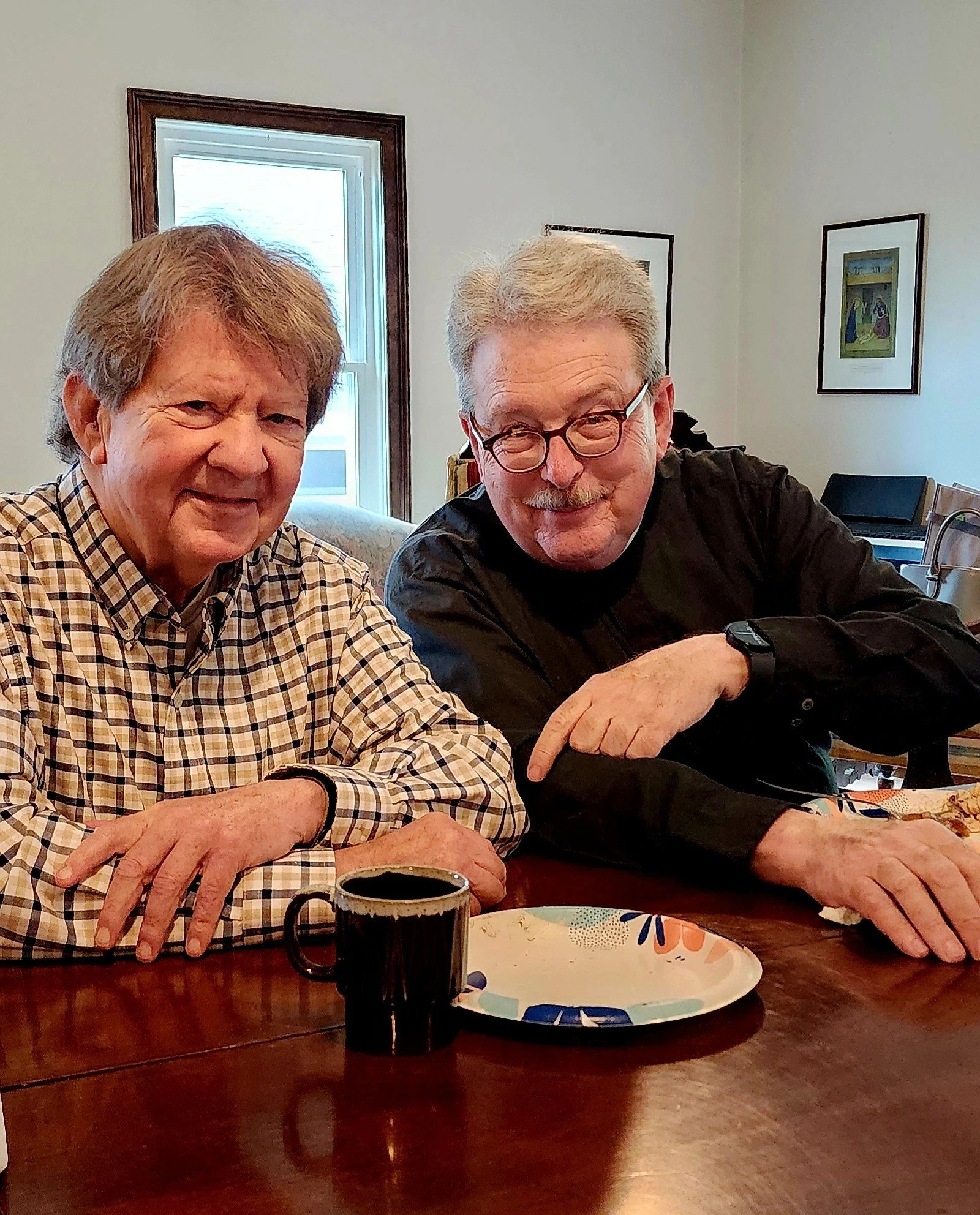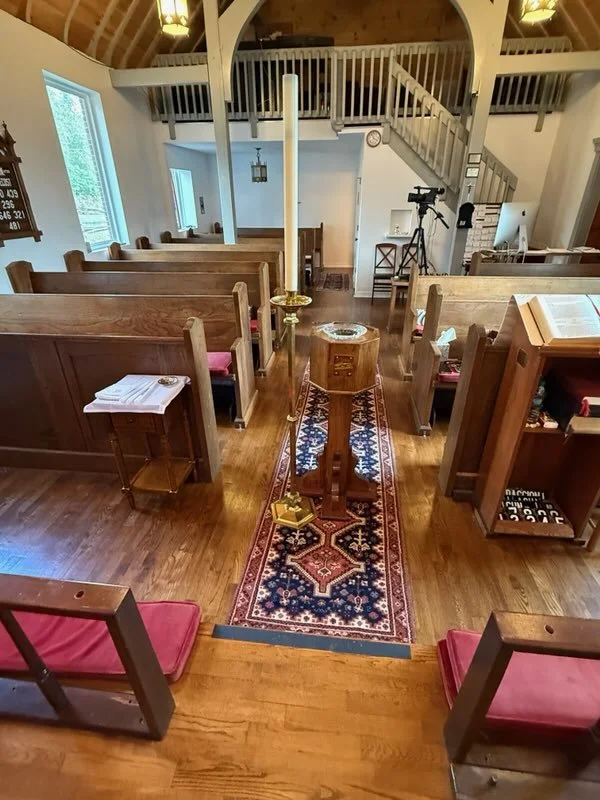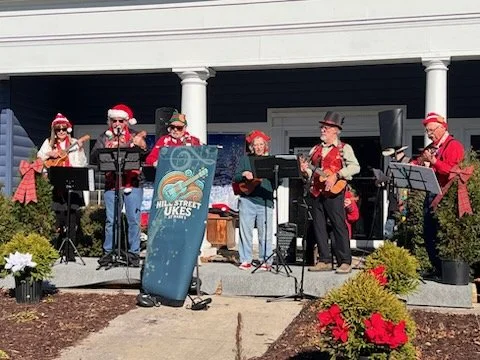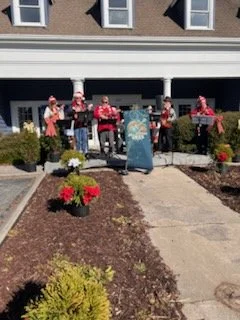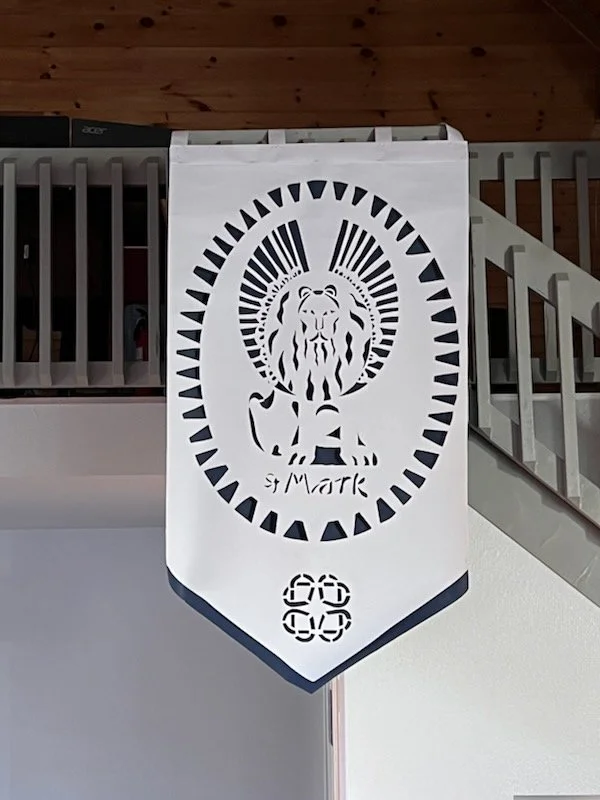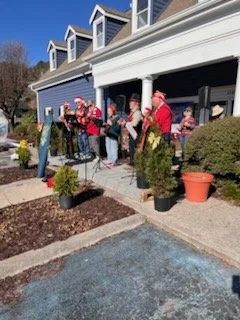Meet Our Church:
ALL are welcomed and loved here!
Frequently Asked Questions
Can I bring my dog to church with me?
Yes please. All we ask is that you let us say hi to them, and keep them leashed.
Is St. Mark’s LGBTQIA+ accepting?
We are accepting and affirming, full stop. When we say “all are welcome here” we mean it.
Parking
Handicap parking is located directly behind our church building at 131 Hill Street. Our overflow lot is located just across the street from the church, at 124 Hill Street. Street parking is also available, just please be mindful of our neighbors and don’t block their driveways!
Dress Code
Nope! On any given Sunday, you will find us in anything from board shorts, to suits and ties.
Children's Programs
St. Mark’s doesn’t have separate children’s programs or services. Instead, we encourage families to all sit together on Sunday morning. Children and their noise are not only welcome, we all look forward to it!
Small Groups and Activities
St. Mark’s has a Novel Women’s Book Club, a Men’s Group (we couldn’t think of a more interesting name), a Ukulele group, crafters (masters of knitting) and we are always looking for new hobbies and friends to enjoy them with. Please visit us and grab the meeting times from our weekly bulletins, or drop us a line in the contact form on this page for more info!
Service Times
Our Sunday morning service is at 10:30am, followed by a coffee hour in the parish house. Every third Sunday of the month, we have a potluck “Sharing Sunday” in the parish house and enjoy a meal together. We also have weekly Christian formation in-person, and compline services over Zoom. Please visit us, and grab a bulletin with the weekly meeting invites!
Contact Information
Please use our contact form on the home page for any questions, prayer requests, or just to drop us a line!
Getting Involved
St. Mark’s is committed to serving our community, which means, we ALWAYS need and welcome volunteers! Jump in where you fit in – choir, community meals, knitting and the occasional hard manual labor on retaining walls!
What We Believe
As Episcopalians, we believe in and follow the teachings of Jesus Christ, whose life, death, and resurrection saved the world.
We believe that God loves you – no exceptions.
The Episcopal Church embraces a legacy of inclusion, aspiring to tell and exemplify God’s love for every human being; people of all genders and sexual orientations serve as bishops, priests, and deacons in our church. Laypeople and clergy work together in leadership and governance.
Core to our Beliefs:
Book of Common Prayer
“It is a most invaluable part of that blessed ‘liberty wherewith Christ hath made us free,’ that in his worship different forms and usages may without offense be allowed, provided the substance of the Faith be kept entire” (Book of Common Prayer, p. 9).
The Book of Common Prayer is a treasure chest full of devotional and teaching resources for individuals and congregations, but it is also the primary symbol of our unity. We, who are many and diverse, come together in Christ through our worship, our common prayer.
The Bible
“Blessed Lord, who caused all holy Scriptures to be written for our learning: Grant us so to hear them, read, mark, learn, and inwardly digest them” (Book of Common Prayer, p. 236).
The Bible is our foundation, understood through tradition and reason, containing all things necessary for salvation. Our worship is filled with Scripture from beginning to end. Approximately 70% of the Book of Common Prayer comes directly from the Bible.
Baptismal Covenant
“Do you reaffirm your renunciation of evil and renew your commitment to Jesus Christ?” (Book of Common Prayer, p. 292).
A mini-catechism used at baptisms and on Easter and other special occasions, the baptismal covenant opens with a question-and-answer version of the statement of faith that is the Apostles’ Creed and adds five questions regarding how we, as Christians, are called to live out our faith.
The Catechism
Offered in a question-and-answer format, the catechism found in the back of the Book of Common Prayer (pp. 845-862) helps teach the foundational truths of the Christian faith.
The Creeds
“The Creeds are statements of our basic beliefs about God” (Book of Common Prayer, p. 851).
In the two foundational statements of faith—the Apostles’ Creed used at baptism, and the Nicene Creed used at communion—we join Christians throughout the ages in affirming our faith in the one God who created us, redeemed us, and sanctifies us.
The Sacraments
“Sacraments are outward and visible signs of inward and spiritual grace” (Book of Common Prayer, p. 857).
Besides baptism and the Eucharist (Holy Communion), the church recognizes other spiritual markers in our journey of faith.
Found in the Book of Common Prayer, these include:
- Confirmation (the adult affirmation of our baptismal vows), pp. 413-419
- Reconciliation of a Penitent (private confession), pp. 447-452
- Matrimony (Christian marriage), pp. 422-438
- Orders (ordination to deacon, priest, or bishop), pp. 510-555
- Unction (anointing with oil those who are sick or dying), pp. 453-467

